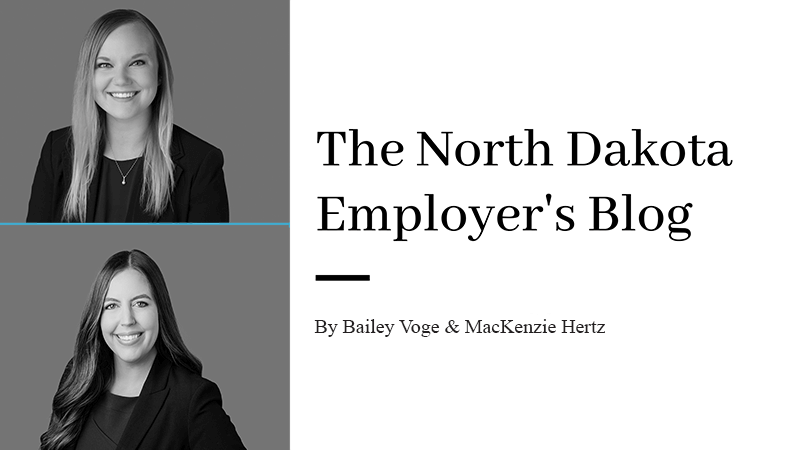
May 19, 2023
On May 16, 2023, the Minnesota Legislature passed SF 3035, which will make significant changes to various employment-related laws. The Governor is expected to sign the bill into law in the very near future, which would make the law effective July 1, 2023.
Minnesota employers should be aware of three major components of SF 3035: (1) a ban on most covenants not to compete, (2) amendments to Minnesota’s Nursing Mothers, Lactating Employees, and Pregnancy Accommodations statute, and (3) mandatory paid sick and safe leave.
Covenants Not to Compete
Under SF 3035, covenants not to compete in employment agreements would be void and unenforceable in most cases. Under the proposed law, a “covenant not to compete” includes any agreement between an employee (or independent contractor) and an employer that restricts the worker, after termination, from working (1) for another employer, 2)in a specified geographical area, or 3) for another employer in a similar capacity as that performed for the employer. The only exceptions to the ban involve agreements not to complete related to the sale or dissolution of a business. In all other circumstances, covenants not to compete would be deemed void and unenforceable in employment agreements.
Importantly, however, SF 3035 does not prohibit nondisclosure, confidentiality, or non-solicitation agreements or agreements that restrict former employees from using the employers’ client or contact lists or from soliciting the employer’s customers.
If signed by the Governor, the ban would be effective July 1, 2023, and apply to agreements executed on or after that date.
Nursing Mothers, Lactating Employees, and Pregnancy Accommodations
SF 3035 would amend Minn. Stat. Ann. § 181.939, which outlines employer responsibilities to nursing mothers, lactating employees, and pregnancy accommodations. The bill broadens statutory protections to cover not only nursing mothers, but also lactating employees. Notably, the bill also removes language specifying a timeframe after a child is born in which employees must be allowed breaks to express milk. It also removes the exception allowing an employer to deny break time if it would disrupt the employer’s operations.
The bill further broadens employee protection as to pregnancy accommodations, adding a temporary leave of absence, a modification in work schedule or job assignments, and more frequent or longer break periods to the list of “reasonable accommodations.” The bill would further require employers to provide notice to employees of their rights under Minn. Stat. Ann. § 181.939 and to provide a similar notice in the employer’s handbook.
The bill would also broaden leave provided under Minnesota’s Parenting Leave and Accommodations statutes (Minn. Stat. Ann. §§ 181.940- 181.944), for pregnancy, parenting, school conference and activities, and the care of relatives. If SF 3035 is enacted, Minnesota law will no longer require employees to work for an employer for at least 12 months and for a specified number of hours per week before qualifying for such leave. Additionally, under SF 3035, Parenting Leave and Accommodations requirements would apply to all employers with one or more employees, rather than 21 or more employees. These changes would become effective on July 1, 2023.
Earned Sick and Safe Time
SF 3035 would create a mandatory sick and safe leave requirement for Minnesota employers with one or more employees. Under the new requirement, employees must accrue at least one hour of earned sick and safe time for every 30 hours worked, up to 48 hours per year. Employees must also be permitted to carry over unused earned sick and safe time of up to 80 hours from year to year. Employees may use this time for their, or their family member’s, mental or physical illness, injury, or other health condition, for absence due to domestic abuse, sexual assault, or stalking of the employee or their family member, for various business closures, and for absences due to an employee’s inability to work because of the potential transmission of a communicable disease. Employers would be required to provide notice to employees of their rights to earned sick and safe time in accordance with the proposed law. This law would go into effect January 1, 2024.
What now? Given the high likelihood that SF 3035 will be signed into law shortly, Minnesota employers should familiarize themselves with these important changes and, once they are in effect, update policies, handbooks, and procedures accordingly. For more information, contact your Vogel Law Firm employment team.
